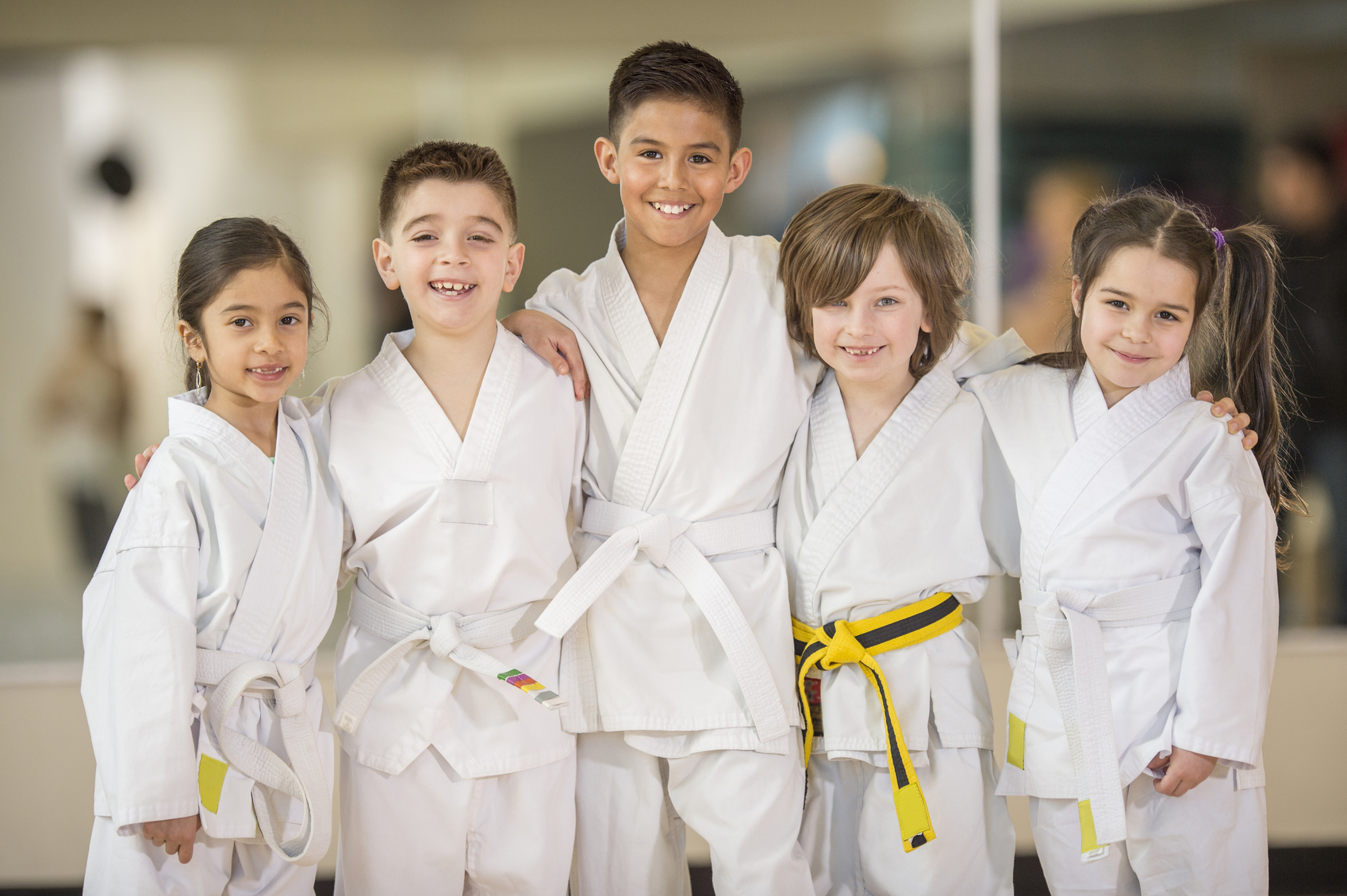
5 Reasons You Should Enroll Your Child in Martial Arts
Posted: July 23, 2018
5 REASONS YOU SHOULD ENROLL YOUR CHILD IN MARTIAL ARTS
Let’s clear the air right away. If you grew up in the 80’s or 90’s, you likely wanted to be like the Karate Kid or one of the Teenage Mutant Ninja Turtles. It’s ok, embrace it.
Now that you’ve got little ninjas of your own, you’re probably weighing the costs and benefits of enrolling them in a martial arts academy. Since the days of mullets and Mr. Miyagi, the options for choosing a local martial arts school have exploded.
MARTIAL ARTS ARE SOMETHING EVERY PARENT SHOULD CONSIDER
In this article, we want to help you understand the benefits of martial arts for kids so that you can make an informed decision. Martial arts training is more than a helpful way to get kids away from electronic devices. Here are our 5 D’s to help you understand the benefits of martial arts for kids:
1. Discipline
A martial arts school is a place that commands respect, focus, and honor.
In many martial arts traditions, students of all ages must show honor (often bowing) to their peers and instructors. Such a simple gesture sets the tone for what’s in store. It serves as a reminder to everyone that martial arts demand focus, respect, and self-restraint – all things that qualify as excellent life skills.
In most martial arts schools or academies, an ethos of honor and prompt obedience to instructions permeates the atmosphere and students catch it quickly. Additionally, Many parents note an increased level of compliance at home once their child begins practicing a martial art- this added take-home bonus only increases the value of every class your student takes!
2. Determination
Unlike many team sports, martial arts students have the ability to set measurable personal goals. This individual responsibility helps students understand the cause & effect relationship of practice & improvement.
Many martial arts traditions use a colored belt system of ranking. Each belt represents a certain level of proficiency and often requires some test or qualifying examination to obtain. Seeing other students wearing higher-ranking belts often compels kids to strive for the next level.
Not only does ranking fuel determination, but the physical demands of martial arts also develop kids’ ability to sweat, strain, and push themselves beyond their limits. Whether engaging in group conditioning such as push-ups or a three-minute practice round, kids quickly learn to force themselves to work harder than ever before.
3. Development
One of the benefits of martial arts for kids is the variety of ways that students will improve. You will see a near-immediate growth in your student's physical, mental, and social skills- many times by the end of their first class! While most parents expect the benefits of the fitness & self-control aspects of martial arts, many are surprised at the positive improvement in social interactions they see in their children. Learning how to show respect, treat people right, and calm their emotions are all great skills to learn how to deescalate troublesome situations, rather than get caught up in an ill-planned altercation at school.
4. Defense
Disclaimer - your kid will learn to do things that might freak you out at first.
Unlike youth basketball or swimming lessons, your child will learn to punch, kick, grapple, block, and more. However, the very nature of martial arts is defensive, making sure that your child knows how to protect themselves from a stranger, or any other situation where running away may not be an option. That all being said, the benefits of martial arts for kids is that it redirects their natural impulses toward aggression and channels them in constructive, helpful, and beneficial ways. Taught correctly, learning martial arts teacheshumility rather than bravado or bullying.
5. Dedication
Martial arts schools and academies challenge kids in useful ways.
They will be challenged to dedicate themselves to press on in their pursuit of the next level of achievement in their respective discipline. Whether it is passing a hands-on test while the student’s instructor grades them or demonstrating proficiency to graduate to the next belt color, kids learn to stick it out even when it’s hard. In a world of instant-gratification, martial arts teaches children real grit & perseverance- skills that can only be developed by overcoming obstacles & pushing through hardships.
ENCOURAGE YOUR KID TO TRY A CLASS- EVEN IF THEY ARE NERVOUS!
Just like brushing their teeth or taking a shower, lifeskills such as courage are acquired through experience. Children with shy tendencies will not magically grow up to be confident, they need to be given the chance to flex their "bravery muscle". To help encourage your child, consider including them in the research process, watch a Jackie Chan movie with them, or even have them bring a friend with them to their first class! (There's nothing better than having a friend by your side as you try something new!)
As you can see, the benefits of martial arts for kids are many. Moreover, the choices of martial arts schools and academies are plentiful. Do your research diligently and ask questions such as:
- Is this martial arts program designed for children, or are there simply children in the adult classes?
- Does the facility have proper safety equipment such as padded floors or safety gear such as facemasks to protect a child's developing body?
- Are the instructors role models (both on and off the mat) that you want your child to emulate?
- In addition to a passion for martial arts, do the instructors have the heart of a teacher?
While there are many choices in martial arts schools, if you can answer "yes" to each of these questions, chances are that you have found a good program. Work with your instructors to help surround your child with peers and role models that teach the same foundations that you are looking for as a parent. Remember, it takes a village (and a dojo) to raise a child.
